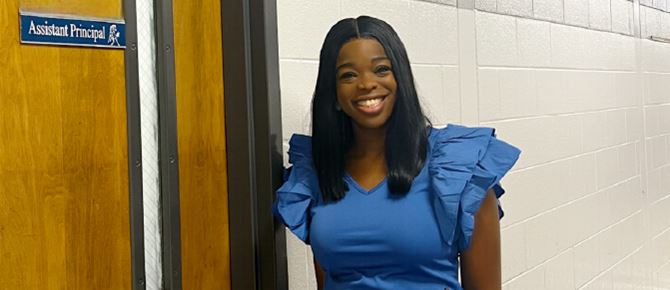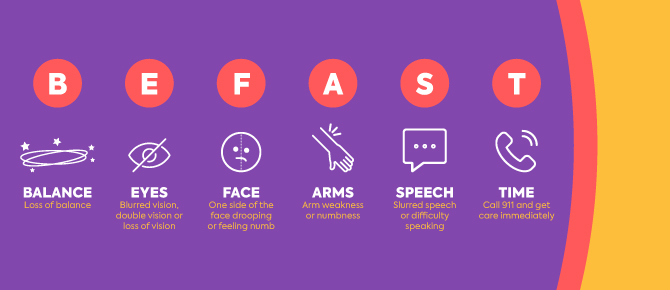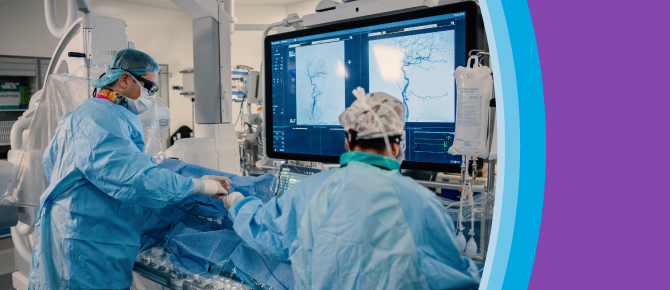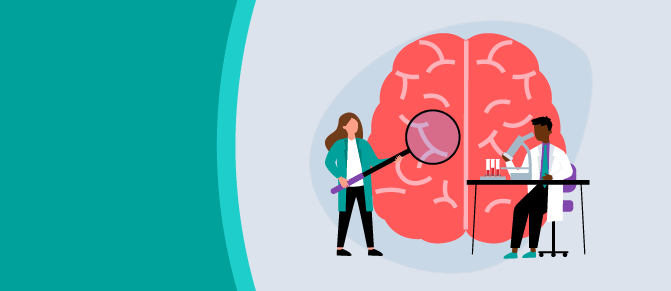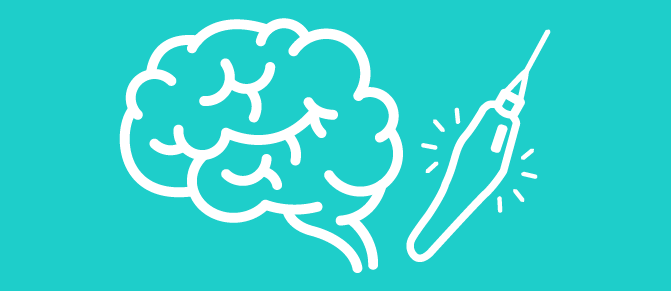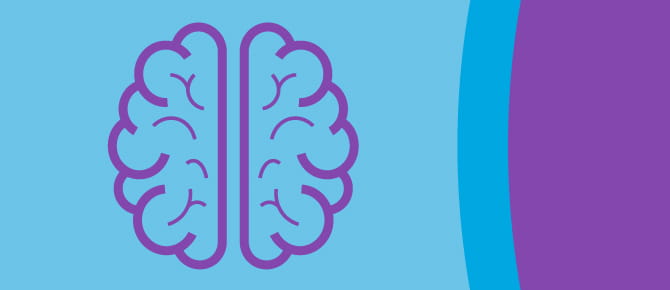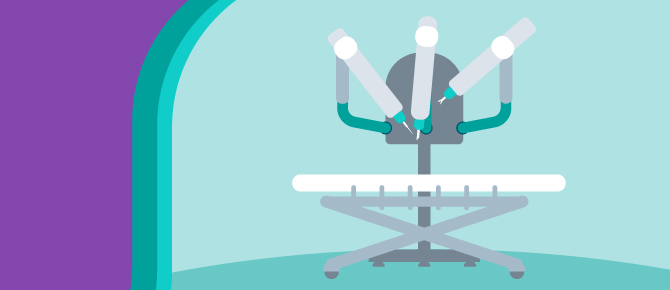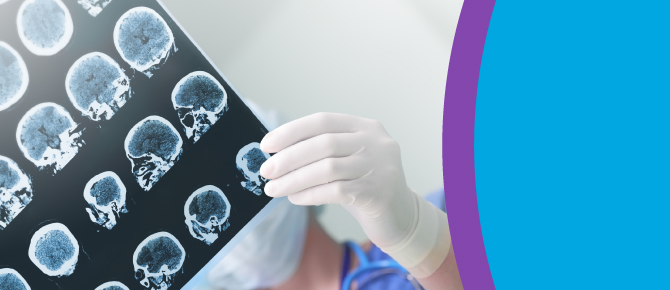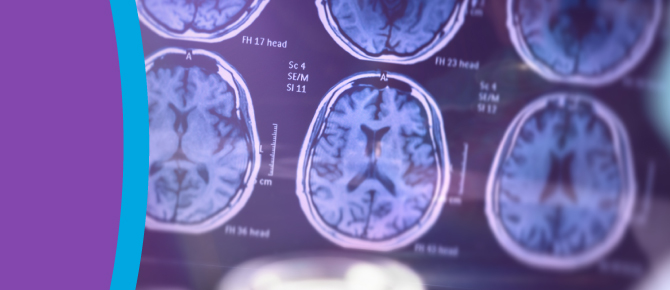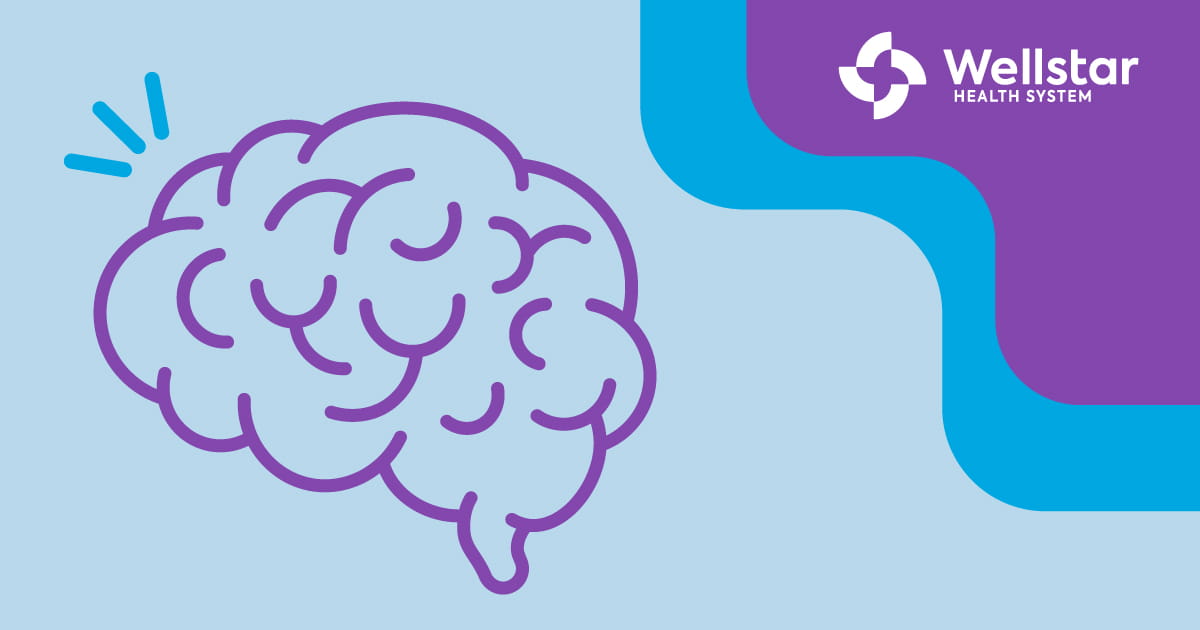Advanced Treatments from Stroke Experts
As the leading provider of stroke and aneurysm services in Georgia, our neuro team performs one of the highest numbers of thrombectomy and aneurysm treatments in the country. Across our network of Joint Commission Stroke certified hospitals, we offer advanced treatments including complex surgery, minimally-invasive neuroendovascular procedures, tenecteplase (TNK) therapy, artificial intelligence (AI) enabled brain imaging and telestroke services.
Download the Stroke Surgery Education Booklet
Stroke Overview
Stroke occurs when a blood vessel to the brain is either blocked by a clot or bursts. When either happens, part of the brain cannot get the blood and oxygen it needs and begins to die. This abrupt interruption of the blood supply to the brain is why a stroke is sometimes called a "brain attack".
The two types of stroke are:
- An ischemic stroke, the most common type of stroke, usually results from plaque (a fatty substance that clogs the artery) or a blood clot. There are two types of clots that can cause a stroke:
- A clot that stays in place in the brain is called a thrombotic stroke. This is a blood clot that forms inside an artery that supplies blood to the brain.
- A clot (either blood or plaque) that breaks loose and moves through the bloodstream to the brain is called a cerebral embolism.
- A hemorrhagic stroke is caused by bleeding in the brain. This can occur when small blood vessels become weak and burst due to high blood pressure or aneurysm rupture. An aneurysm is a widening of an artery that creates a bulge, weakening the arterial vein wall and causing it to rupture. This may cause a sudden, very severe headache.
Stroke is the third most common cause of death for Americans, and the leading cause of adult disability. The Wellstar Stroke Center, located in Wellstar Cobb Hospital, is accredited by the Joint Commission as a Stroke Center of Excellence and holds Disease Specific Care Certification as a Primary Stroke Center. In addition, Wellstar’s Stroke Center is nationally certified in stroke care by the Commission on Accreditation of Rehabilitation Facilities (CARF), an independent, nonprofit accreditor of health and human services.
Symptoms
Immediate care is vital to the successful treatment of a stroke. Familiarize yourself with stroke symptoms and get urgent help if you suspect someone has suffered a stroke. Stroke symptoms, which often appear suddenly, can be easily remembered using the B.E.F.A.S.T. acronym:
- (B) Balance, loss of balance, headache or dizziness
- (E) Eyes, blurred vision
- (F) Facial droop or uneven smile
- (A) Arm/leg numbness or weakness, loss of coordination or balance
- (S) Slurred speech, difficulty speaking or understanding simple commands
- (T) Telephone 911 and get to the hospital immediately
Not all of these symptoms will be apparent with every stroke. If any symptoms appear, get help immediately.
Risk Factors
Many of the risk factors for stroke can be controlled with medication, medical attention, diet or exercise. Risk factors include:
- High blood pressure—the #1 risk factor for stroke
- Heart disease
- Atrial fibrillation (irregular heartbeat)
- High LDL (“bad”) cholesterol levels
- Low HDL (“good”) cholesterol levels
- Diabetes
- Obesity
- Cigarette smoking
- Physical inactivity
- Cocaine and other drug use
- Alcohol abuse
Other risk factors that can’t be controlled or changed include:
- Age—The chance of having a stroke approximately doubles for each decade of life after age 55.
- Heredity—Stroke risk is greater if a family member has had a stroke.
- Race—Black people are at higher risk of death from a stroke than caucasians.
- Gender—Stroke is more common in men than in women.
- Prior stroke—The risk of stroke for someone who has already had one is many times that of a person who has not.
- Transient ischemic attack (TIA)—TIAs are "warning strokes" with stroke-like symptoms but no lasting damage.
- Heart attack—People who have had a heart attack are at higher risk of having a stroke.
Stroke Prevention
We believe the best treatment for stroke is to prevent it from occurring. Following a few simple healthy lifestyle guidelines can help decrease the chance that you will suffer a stroke.
Reduce Your Risk of Stroke
- Lower high blood pressure, the leading cause of stroke.
- Don’t smoke.
- Diabetics should manage the disease carefully.
- Control atrial fibrillation, an irregular heartbeat.
- Lower your overall cholesterol.
- Enjoy a balanced diet with five or more servings of fruits and vegetables per day and reduce saturated fat, trans-fat, cholesterol and sodium in your diet.
- Stay active and fit with a total of at least 30 minutes of moderate activity on most days.
Stroke Diagnosis
Because signs and symptoms of stroke can vary and treatment options change based on the type of stroke and time of diagnosis, initial prompt evaluation by a physician is essential for proper care. Wellstar neuroradiologists are sub-specialized to provide fast and accurate stroke diagnoses. When a patient shows symptoms of a stroke or TIA (transient ischemic attack), a doctor will gather information and make a diagnosis. This includes:
- Reviewing the patient’s medical history.
- Perform a physical and neurological examination.
- Ordering blood tests.
- Conducting diagnostic imaging procedures.
Procedures
- Computed tomography (CT) scan provides valuable information about the cause of stroke and the location and extent of brain injury.
- Magnetic resonance imaging (MRI) uses magnetic fields to detect changes in brain tissue that helps to locate and diagnose stroke.
- Magnetic resonance angiography (MRA) produces an image of the head and neck to evaluate blood flow through the vessels.
- CT angiography (CTA) evaluates the arteries in the neck and head.
Stroke Treatment
Wellstar Health System now includes two Primary Stroke Centers certified as Centers of Excellence by the Joint Commission (JCAHO).
Emergency Room Treatment
Chances for recovery are greatest when treatment is started immediately after a stroke has occurred. Emergency room treatment may include:
- Use of a clot busting medication called tPA that helps to break up a clot in an ischemic stroke. Clot busters are most effective when administered within three hours of the onset of stroke symptoms, or “last known normal.”
- Corticosteroids and other medications that can be used to help reduce or control brain swelling after a hemorrhagic stroke.
- Endovascular treatment
Preventive Treatment
Preventing stroke or reducing the risk of repeated strokes can involve medication and/or surgery. Preventive treatment for ischemic stroke can include:
- Medications, called anticoagulants or anti-platelet agents, that prevent blood clots from forming.
- Carotid endarterectomy, which is surgery to remove blood vessel blockage from the carotid artery.
- Balloon angioplasty and implantation of stents to treat cardiovascular disease and reduce fatty buildup clogging a vessel.
Preventive treatment for hemorrhagic stroke can include:
- Surgery to either place a metal clip at the base of the aneurysm or to remove the abnormal vessels of an arteriovenous malformation (AVM), which is a snarled tangle of arteries or veins.
- Endovascular procedures, which introduce a catheter through a major artery in the leg or arm. The catheter is guided to the aneurysm or AVM where it leaves a mechanical agent to prevent rupture.
Ongoing Care for Strokes
Post-stroke rehabilitation does not undo the damage caused by a stroke, but helps individuals overcome disabilities that result from stroke damage. Wellstar’s heart healthy programs, education and cardiac/stroke rehabilitation services focus on helping patients maintain a healthy heart, which goes hand in hand with stroke prevention.
Inpatient stroke education involves rehabilitation professionals teaching patients how to live a heart-healthy lifestyle, not only for the duration of the rehab, but also for the rest of their lives. Our skilled inpatient rehabilitation staff’s ongoing commitment to results has earned Wellstar Cobb and Kennestone hospitals accreditation by the Commission on Accreditation of Rehabilitation Facilities (CARF).
Wellstar Kennestone Hospital’s Outpatient Rehab Center offers one of only three Day Treatment Programs in the metro Atlanta area. The Day Treatment program provides comprehensive rehabilitation for patients needing continued intensive oversight of their recovery from neurological or traumatic injuries. Under the guidance of a board certified physiatrist, our interdisciplinary therapy team focuses on self-care and home management.
Outpatient Exercise Program classes provide support, information and ongoing education for a heart-healthy lifestyle including successful risk factor modification. Heart Smart School is a free education class for patients, family and friends taught by a cardiac nurse, an exercise specialist and a dietician. Topics include how the heart works, risk factor modification for a heart healthy lifestyle, cardiac nutrition, exercise and the emotional aspects of heart disease.
Wellstar offers other services for people learning to live with the effects of a stroke, including home health services, physical therapy and rehabilitation, and Unlimited Possibilities, a complimentary after-care support group for patients, family members and care givers.

